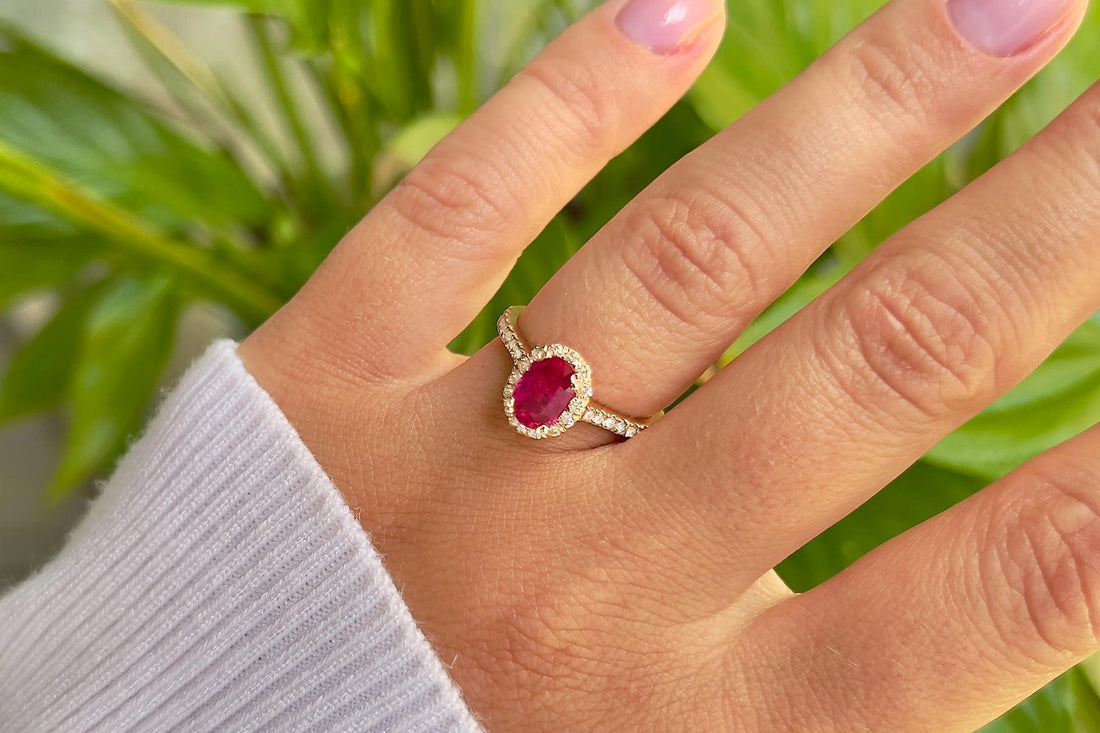
Ethical Jewelry: Elevating Fashion with Conscious Choices
Share
 In an era characterized by a heightened awareness of environmental and social issues, the jewelry industry is experiencing a significant transformation. Ethical jewelry, marked by responsible sourcing and production practices, is emerging as a powerful force reshaping the dynamics of both fashion and ethical considerations. This exploration into ethical jewelry delves into the profound impact of conscious choices in the industry, highlighting the importance of responsible sourcing, the use of recycled materials, and the adoption of fair trade practices.
In an era characterized by a heightened awareness of environmental and social issues, the jewelry industry is experiencing a significant transformation. Ethical jewelry, marked by responsible sourcing and production practices, is emerging as a powerful force reshaping the dynamics of both fashion and ethical considerations. This exploration into ethical jewelry delves into the profound impact of conscious choices in the industry, highlighting the importance of responsible sourcing, the use of recycled materials, and the adoption of fair trade practices.
At the core of ethical jewelry lies the concept of responsible sourcing, where the journey of materials from origin to finished product is transparently traced. This practice ensures that every step adheres to ethical and sustainable standards, addressing concerns related to fair labor practices, environmentally friendly mining methods, and the use of conflict-free gemstones.
Recycled metals play a pivotal role in ethical jewelry, offering a sustainable alternative to traditional extraction methods. By incorporating recycled gold, silver, and platinum, ethical jewelers mitigate the environmental impact associated with metal extraction while maintaining the quality and beauty of their creations.
The diamond industry has historically been marred by ethical controversies, particularly concerning conflict or "blood" diamonds. In response, ethical jewelers are turning to lab-grown diamonds, providing a responsible alternative that eliminates concerns related to human rights abuses and environmental degradation.
Fair trade practices represent another crucial aspect of ethical jewelry, ensuring that artisans and communities involved in the production process are treated fairly. Ethical jewelers often collaborate with artisan communities, supporting traditional craftsmanship and empowering local economies.
In addition to responsible sourcing, ethical jewelry embraces eco-friendly production methods that minimize the environmental footprint of the manufacturing process. This includes the use of energy-efficient technologies, waste reduction strategies, and sustainable packaging practices.
Ethical certifications, such as those provided by the Responsible Jewellery Council, play a vital role in establishing accountability within the industry. These certifications set standards for ethical, social, and environmental practices, providing consumers with assurance that the jewelry they purchase meets rigorous ethical standards.
Empowering consumers with knowledge is fundamental to the ethical jewelry movement. By understanding the impact of their choices, consumers can make informed decisions that align with their values. Ethical jewelers often provide educational resources on their websites, detailing their sourcing and production practices.
As ethical awareness grows, the demand for certified jewelry is on the rise. Ethical certifications not only promote transparency but also encourage continuous improvement within the industry, fostering a culture of accountability.
The changing perception of ethical jewelry within the fashion industry is a noteworthy development. No longer confined to a niche market, ethical jewelry is gaining recognition as a dynamic and influential force shaping the future of luxury. It is viewed not just as a trend but as a movement that challenges the status quo and inspires a commitment to values, global communities, and sustainability.
In conclusion, ethical jewelry signifies a paradigm shift in the industry, where conscious choices have the potential to redefine luxury. The movement towards responsible sourcing, recycled materials, fair trade practices, and eco-friendly production methods is not merely a trend but a transformative force. Ethical jewelry stands as a testament to the belief that style and sustainability can coexist harmoniously, inspiring both the industry and consumers to make choices that positively impact the planet and its people.
